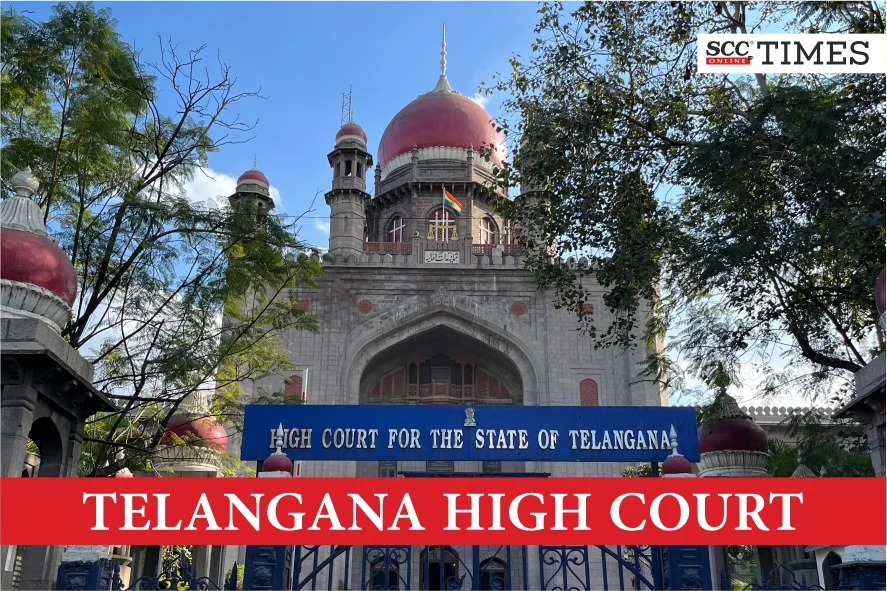Telangana High Court: The issue raised in the present petitions was “whether show cause notices issued under Section 148 of the Income Tax Act, 1961 (‘the 1961 Act’) in matters relating to international tax charges were exempted to follow the statutory faceless procedure?”. The Division Bench of Sujoy Paul* and Namavarapu Rajeshwar Rao, JJ., opined that no exemption from faceless procedure could be read by combined reading of the provisions for the purpose of issuance of notice under Section 148 of the 1961 Act and in the present case, since notices under Section 148 were not issued in a faceless manner, the entire further proceeding and assessment orders stood vitiated.
Background
Petitioners contended that the notices under Section 148 of the 1961 Act were issued in violation of the prescribed procedure of faceless assessment and were not issued by an officer holding charge of international tax cases. In the present case, the show cause notices were issued by a faced authority and thus, petitioners submitted that the notices run contrary to the mandatory procedure prescribed in the gazette notification dated 29-03-2022, which was related to the issuance of notice under Section 148 in a faceless manner.
Analysis, Law, and Decision
The Court took note of Section 151-A of the 1961 Act and opined that it was an enabling provision which permitted the Central Government to make a scheme for the following purposes, (a) assessment, reassessment or computation under Section 147; (b) issuance of notice under Section 148; (c) conducting enquiries or issuance of notice under Section 148-A; and (d) sanction for issue of such notice under Section 151. Thus, the Central Government, in exercise of power under Section 151-A, issued notification dated 23-09-2022.
The Court noted that Section 144-B(2) of the 1961 Act made it obligatory for undertaking faceless assessment in respect of such territorial area, or persons or class of persons, or incomes or class of incomes, or cases or class of cases, as might be specified by the Board.
The Court opined that Section 144-B(2) was also an enabling provision to the extent it gave authority to the Board to ‘specify’ about applicability of faceless assessment in respect of class, income, group, etc. The Court noted that Clause 3(b) of notification/scheme dated 29-03-2022 showed that issuance of notice under Section 148 was squarely covered and mandated under Clause 3 by making it clear that it shall be through automated allocation, in accordance with risk management strategy formulated by the Board as referred to in Section 148 for issuance of notice, and same had to be in a faceless manner.
The Court stated that the expression “to the extent provided in Section 144-B of the Act” did not deal with ‘issuance of notice’ under Section 148 and was applicable with reference to ‘assessment’ and ‘reassessment’. Section 144-B(2) relates to “assessment” and did not deal with issuance of notice under Section 148 of the 1961 Act.
The Court noted that the order of CBDT dated 06-09-2021 dealt with “assessment orders” and the said order was passed in exercise of power under Section 144-B of the 1961 Act. The order of CBDT was clear that direction was issued about passing of “assessment orders” by the National Faceless Assessment Centre under Section 144-B except in two situations, one of which was passing of assessment orders in cases assigned to International Tax Charges. Thus, the Court opined that there was no doubt that Section 144-B and order of CBDT dated 06-09-2021 gave exemption from following the mandatory faceless procedure only in relation to passing of assessment orders in cases of central charges and international tax charges.
The Court opined that the taxpayer was nowhere distinguished between NRIs and Indian Citizens and thus the notice issued under Section 148 must comply with the requirement of the scheme whether or not the taxpayer was NRI/Indian Citizen.
The Court relied on Hexaware Technologies Ltd. v. Asst. CIT, (2024) 464 ITR 430 : 2024 SCC OnLine Bom 1249, and opined that the expression “to the extent provided in Section 144-B of the Act” used in Clause 3(b) of the scheme dated 29-03-2022 did not preclude the mandatory faceless procedure for issuance of notice under Section 148 of the 1961 Act. The Court also opined that any other interpretation would not only cause violence to the language used but would also defeat the object for which a transparent ‘faceless procedure’ was introduced.
The Court held that no exemption from faceless procedure could be read by combined reading of the provisions for the purpose of issuance of notice under Section 148 of the 1961 Act. The Court stated that respondents had erred in not following the mandatory faceless procedure as prescribed and since notices under Section 148 were not issued in a faceless manner, the entire further proceeding and assessment orders stood vitiated. Thus, the impugned notices under Section 148 and all consequential assessment orders were set aside.
[Venkataramana Reddy Patloola v. CIT, 2024 SCC OnLine TS 1792, decided on 24-07-2024]
*Judgment authored by: Justice Sujoy Paul
Advocates who appeared in this case:
For the Petitioner: Dundu Manmohan, A.V. Raghu Ram, A.V.A. Siva Kartikeya, Counsels
For the Respondents: Vijhay K. Punna, Senior Standing Counsel







